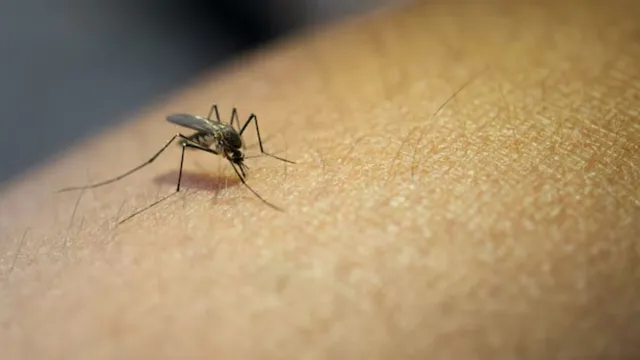- By Supratik Das
- Tue, 05 Aug 2025 06:54 PM (IST)
- Source:JND
Chikungunya outbreak China: Southeastern China's Guangdong province is experiencing a large-scale Chikungunya virus outbreak, with more than 7,000 cases reported since the beginning of July, leading authorities to enforce containment measures like to those imposed during the COVID-19 pandemic.The most affected area is Foshan City, where infected virus patients are made to remain in hospital isolation, under strict medical surveillance. Mosquito nets are placed over beds in hospitals to avoid further transmission, and only after seven days of treatment or when test results are negative are they discharged.
The health authorities have confirmed that over 12 Guangdong cities have recorded cases, with over 3,000 new infections appearing just last week. Hong Kong posted its first imported case on Monday, a 12-year-old child who came down with symptoms after returning from Foshan.
What Is Chikungunya Virus?
Chikungunya is an arboviral infection transmitted by mosquitoes, caused by the Chikungunya virus (CHIKV), carried mainly by the Aedes aegypti and Aedes albopictus mosquitoes.
Common symptoms of Chikungunya Virus are:
•Sudden onset of fever
•Severe joint pain (often debilitating)
•Rash
•Muscle pain, headache, and fatigue
Though usually not life-threatening, the illness will result in chronic symptoms of arthritis-like disease lasting months or even years. The virus is not transmitted from person to person but can be transmitted from an infected mother to a child at birth.
Emergency Response: Fines, Quarantine, And Monitoring
The local authorities in Foshan and neighboring regions have imposed administrative penalties on enterprises, starting with hotels and restaurants, for not clearing areas where mosquitoes breed. Restrictions have also been placed by health authorities, including a 14-day home quarantine on arrivals from Foshan, although some restrictions have been relaxed since then. Pharmacies are required to document customer information and histories of mosquito exposure when dispensing medications for fever or joint pain, according to a directive published by Southcn.com, as part of tightened surveillance.
The US Centers for Disease Control and Prevention (CDC) has recommended that travelers use extra caution when traveling to infected areas in China. Travelers with certain health conditions, pregnant women, and older adults are particularly advised to reconsider or delay non-essential travel to southern China.
How Do You Stop Chikungunya From Spreading?
No antiviral medication is available for Chikungunya. Healthcare providers prescribe:
•Rest and fluid intake
•Acetaminophen (paracetamol) is used to control fever and pain (particularly where dengue is also endemic)
•Refraining from aspirin and nonsteroidal anti-inflammatory drugs (NSAIDs) until dengue has been excluded to avoid enhancing the risk of bleeding
•For chronic joint pain: NSAIDs, corticosteroids, and physical therapy may be beneficial.
ALSO READ: From Nagpur To Paris: How Indian Oranges Are Now Saving Millions With This Popular Medicine
How Can You Prevent Chikungunya?
Public health organisations stress mosquito control and preventing bites as the most important strategies:
•Apply EPA-accepted insect repellents
•Wear long-sleeved shirts and pants
• Remain indoors in air-conditioned or screened housing
• Use bed nets, particularly when sleeping outside
• Infected patients should not expose themselves to mosquitoes for the first week of sickness to avoid infecting resident mosquito populations.
As of 2024, two vaccines have been licensed in the United States, IXCHIQ, a live-attenuated vaccine, and VIMKUNYA, a virus-like particle vaccine. Though not yet on the market in China, these vaccines are approved for travelers to endemic areas and workers in laboratory settings who handle the virus.
The outbreak has created fear and anger among Chinese people, who have voiced concern at the painful long-term consequences and strict government controls. While Chikungunya is not unfamiliar to the world, its unprecedented outbreak in China also underscores the mounting influence of climate change, urbanisation, and international travel on the transmission of mosquito-borne illnesses. With Guangdong at high watch, public health officials remain closely observing the situation while encouraging the public to remain vigilant and practice preventive measures.

